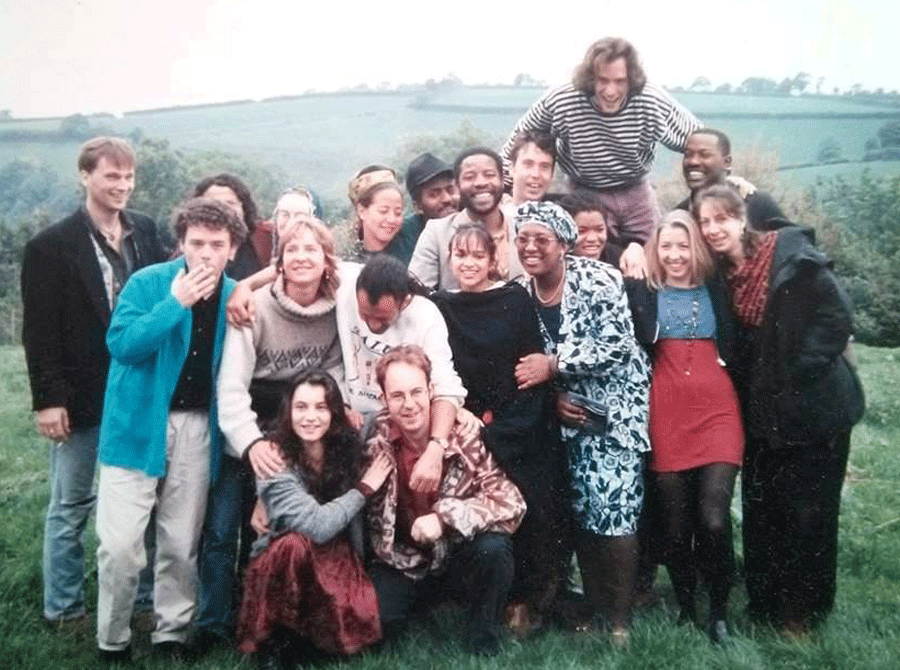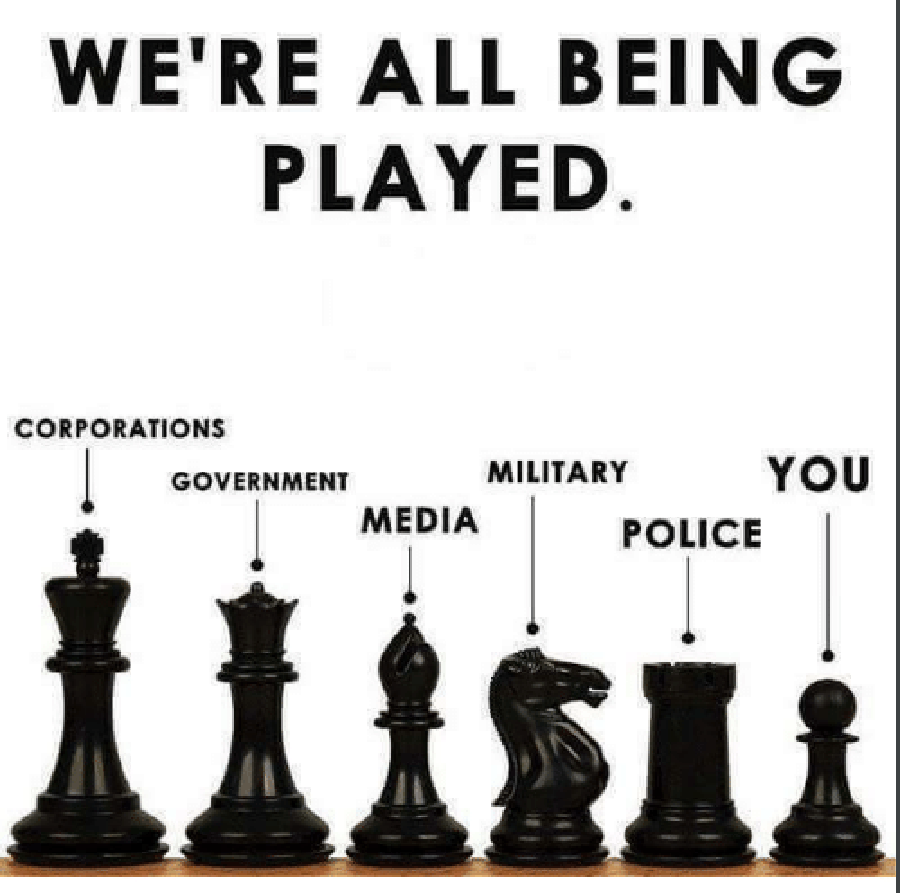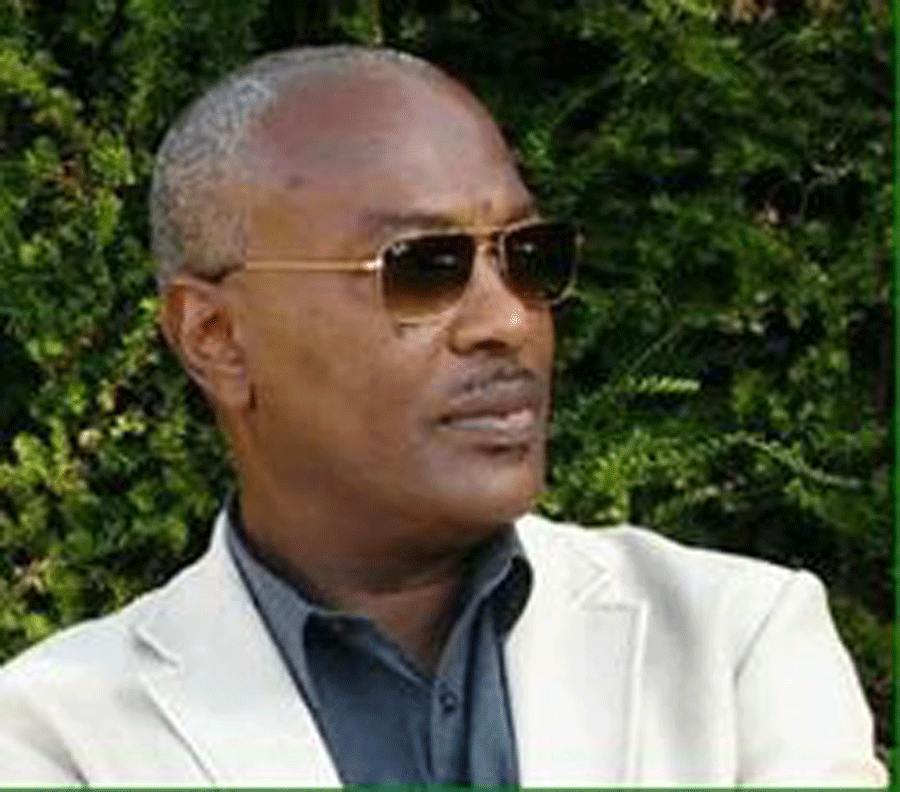I spent the best part of my thirties studying in the midlands of England in a city called Oxford, at the University of Oxford. I went to England without the benefit of the usual advice given by the British Council on matters ‘cultural shock’.
On April 2, 1992 I landed at Heathrow airport and managed to locate the bus stop, where I took a bus to Oxford. In the Kenyan style of strangers asking for assistance and getting it, I asked the first person I met on landing where Little Clarendon Street was. The answer was simple: “Why don’t you get a map”!
It turned out that Little Clarendon Street was only a few blocks away from the Gloucester Green Bus Park where I was.
That was my introduction to Great Britain; that Imperial Power which had demarcated and colonized the territory that I now proudly present as my country. I have left out the difficulties associated with going through the passport controls and the long lines for ‘non-EU citizens’ and getting used to going to the queue for ‘If You Have Something To Declare’ even when a person like me had nothing to declare, save for the fact that I was an African student getting in for an opportunity to study.

Despite efforts by the staff at the programme in which I was enrolled to organize multicultural events to make foreign students like me feel at ease, I was lost. That is until one Thursday I ventured into a pub where ‘African music’ was being played. I asked the DJ if he knew people who were interested in playing African music. This single whimsical enquiry provided me with the most important tool for my social survival in Oxford.
To cut the long story, we formed a multicultural and international band called Jalua with people from the UK, Ethiopia, Sudan, South Africa and Kenya, among others. At its height it was over 16 members-strong and consisted of yuppies, students, refugees and asylum seekers, upcoming and professional musicians, cultural activists, you name it.
The band became quite something in Oxford and we had gigs in London, Wales, and all over, to name but a few places. We played for Oxfam (an international humanitarian organization), and at the famous ‘Sound City’.
If we weren’t supposed to honour the length of time some of our visas permitted us to stay in the UK, music could have been seriously considered as a career alternative to the rigours of academic demands required for doctoral studies at the University of Oxford.
Over the years I have wondered why institutional attempts to socialize us foreign students were not as successful as the non-institutional channels of coming together abroad.
It is true that I have kept links with some people from my academic circles of Oxford. But the most fond and memorable links I have maintained are with those whom I met informally; principally through the Jalua Band.

We formed Jalua as individuals with a shared interest. We spoke the language of music. Race, cultural diversity and differences in nationality were an advantage rather than a hindrance. When we met as Jalua, we were together as one. It cushioned us from the vagaries that are the current debate in the West concerning ‘immigrants’ and ‘foreigners’ and ‘refugees’ and ‘asylum seekers’ and ‘economic migrants’.
Indeed the whole gamut of ‘the other’ that has spurred Brexit in the UK, and is being exploited by Donald Trump in the United States of America, threatens to break the rest of the EU, and will lead to attempts at mass expulsion of ‘foreigners’ from continental Europe.
The labelling of the immigrant as the ‘undesirable other’ has been an assault on a fundamental cornerstone of the ideals of globalization, namely free movement of ideas, capital, goods, and people. In globalization’s present form, the principal institution of global politics – the state – jumped into the bandwagon; but with a somewhat different agenda. States’ driven globalization first emerged in the form of international organization the culmination of which was the birth of the United Nations (UN).
On the surface, its impetus was provided by desire for a warless world. But underlying it has been the requirements of international capitalism and big business protected by instruments of the state and internationalism.
In the process the ordinary folks’ dream of a united world of the ‘worldwide web’, satellite television, and free movement of people has not been realized as the system of business-sponsored states work to define some aspects of globalization as desirable and others inimical.
To the ordinary indoctrinated literate working class populations the world over, globalization has held many promises. Attempts to thereafter ‘disintegrate’ the world again are viewed simply as wrong. The EU and other regional blocs should be nurtured, with regional integration and globalization developed as a platform of development across the globe. In this way, there is a fair chance for the ‘developing world’ to grow and catch up with the ‘giants’ of the world through world trade, job creation, affordable labour for industries to thrive and improvement in innovation.
The recent vote by Britain to exit the EU has been seen as a major drawback. There is a wish in some quarters for a reason to reverse the decision; otherwise the world becomes a ‘bad place’ again. This will ‘set a bad example’ and may lead to disintegration of existing global networks due to ‘selfishness of a few leaders’; leaders ‘who preach negative motives’ to the young generation who would otherwise prefer the world as a single ‘global village’.
This romantic view of globalization is problematic: As Brexit has demonstrated the purported beneficiary sections of the society have rebelled against it. They feel that they are being played by every one of the global, regional and state actors: corporations, state authorities and governments, the media, the military, the police, banks, regional and global governmental organizations, you name it. The average Joe is feeling like a pawn in a chess game whose strings are being pulled by inscrutable forces; forces undemocratic, bureaucratic, legalistic, and generally irresponsive to what really affects him or her.
Therefore, whereas the mass of the population supports globalization, they have opted – as has been the case of Britain and Greece – for a preference to exit the prevailing order and try to revert to ultra-nationalism. Paul Mason has summed the resulting paradox as follows:
“Millions of people are beginning to realize they have been sold a dream at odds with what reality can deliver. Their response is anger – and retreat towards national forms of capitalism that can only tear the world apart. Watching these emerge, from the pro-Grexit left factions in Syriza to the Front National and the isolationism of the American right has been like watching the nightmares we had during the Lehman Brothers crisis come true.”
An anonymous graphic artist has vividly portrayed the feeling of the citizenry in the following terms:

At a conceptual level, globalization promises a lot, is very good and must be encouraged because it shall bear many beneficial fruits. The problem comes when the agents of globalization are the few select elites who constitute those who control the politics and the economy of the world. Globalization driven by these two agents is by its very nature undemocratic and irresponsive to the needs of peoples. They want to globalize business and yet limit population mobility. Capital is global as it does not suffer from being a citizen of a specific country. Business has been internationalized through multinational corporations and the transnational movement of goods and services.
Yet contemporary globalization driven by the governing elites is inimical to free population movement and creates rules and regulations that do not represent the will of the people; just like the EU is. Alternatively, they wipe up fears amongst the citizenry against immigrants by presenting xenophobic half-truths. That is why there should be a paradigm shift to a globalization driven by forces other than those that emanate from the state and/or its agents.

The understanding is that globalization as the way forward is not only unstoppable, but should be nurtured. It is, therefore, the agents that should be changed, and then things may just work out. If only the EU could be of the peoples in Europe rather than of the bureaucrats at Brussels and the governments who have mandated them …
For all practical purposes, state-driven globalization is a continuation of imperialism and colonization – intra state and across states – by big business; and it works to the disadvantage of all peoples everywhere, save for the overarching long term interests of owners of capital. It is a globalization of exploitation and a disaster to the peoples of the world.
To begin with, globalization (of which the EU and other regional grouping of states are a part) and technological change have left large sections of society behind – they do not have the skills to compete (and if we face the ‘politically incorrect’ truth, they do not have the mental capacities – skills can be learned). It has created an underclass in a George Orwellian Nineteen Eighty-Four world, which is now in revolt. This state of affairs can only be addressed vide what the Frenchman, Jean Jacques Rousseau, would have called a new social contract.
Secondly, the world’s socially driven communication and education systems have dumbed down political discourse, and delegitimized rational thought (including in the sciences), replacing it with ‘how to’ type of knowledge.

The general level of public education is low except for the elites. The media – by virtue of being controlled by the same system – does not challenge the untruths and simplifications. In other words it has failed as a constitutional bulwark, thereby putting the professed democratic systems in peril. “Post-truth” politics can only lead to failure of Western type democracies and human rights protection regimes.
Thirdly, the so-called democracy has been captured by the elites. The citizenry has not found a way to make societal decisions which reflect the legitimacy of listening to the people and the requirement that, in a complex world, there is need for professional technocratic decision-making (i.e. the elites know best yes, but they should not have legitimacy to decide for the citizenry).

Finally, the ‘baby boomers’ of the 1950s through to the 1960s have despoiled the environment and the economy in their own favour and have sold the younger generation short. As a consequence, whereas the idea of globalization can be of numerous benefits to the world, society must nurture innovative strategies that are fair to the process and carried out by agents who mean well to the structures to make it be realized; away from the political classes who are bent on ‘politically negotiating’ each and all things.
Their activities have often led good idea producing horrendous results. The challenge, though, lies in figuring how to harness the political will to counter negative developments associated with state-driven globalization. The anticipated benefits should spur the United Peoples of the World (as opposed to the United Nations of the World) to support and pursue trans-border migration and integration.
To go back to Jalua, my erstwhile British and other friends in Europe generally want to stay global, in this case in the EU. What they are crying out for is an EU in which the bureaucracy in Brussels is not overbearing and is responsive to the people’s will.
Their experience with interacting cross-culturally and multi-nationally taught them the beauty and innovativeness that comes with transcending state and cultural barriers. Ours was a first-hand experience with non-institutional and non-state encapsulated globalization in which peoples of different races and nations came together to achieve a common objective: to make good music and have fun while doing it.
Some two decades on, we are racing past our middle age. The memories are still fresh and the worldwide web has continued to provide us with a channel with which to communicate across the globe.
We are actually contemplating a big get together to make music one more time, before we pass the baton on to the next generation. Meanwhile, we are not bad for the wear for having ‘globalized’ – migrants and non-migrants, blacks and whites, and persons from differing professional backgrounds and callings. Probably some of us can exclaim with Doug Casey that:
The thought of how far the human race would have advanced without government simply staggers the imagination!
By Enoch Opondo
Global Education and Development Organization
Kisumu – Kenya
RELATED ARTICLES
Why Ageism is a Legitimate subject for Human Rights Advocacy
Kenya, a failing State on the road to Genocide
